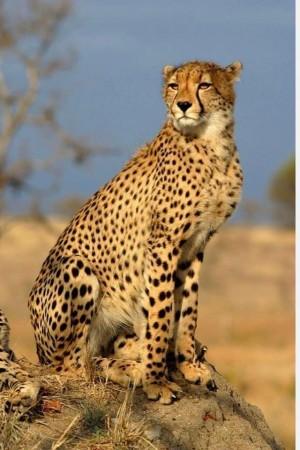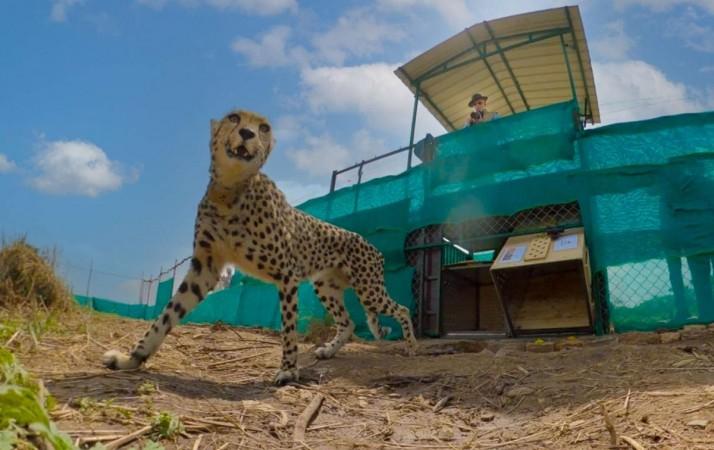A few African cheetahs transloacted to the Kuno National Park (KNP) in Madhya Pradesh last year coinciding with PM Narendra Modi's Namibia visit will be relocated to the Gandhi Sagar Wildlife Sanctuary in Mandsaur and Neemach districts of the state, by November this year.
Initially, the plan was to prioritize the relocation of some of these magnificent felines to the Mukundra Hills Tiger Reserve in Rajasthan. However, the Cheetah Task Force Committee has now determined that shifting some of the cheetahs from KNP to the Gandhi Sagar Wildlife Sanctuary is the new course of action.
During a meeting of the National Tiger Conservation Authority (NTCA), Chandra Prakash Goyal, the Director General of the Forest Ministry, disclosed that the Gandhi Sagar Wildlife Sanctuary is the primary destination for the cheetahs from KNP. He further revealed that the next suitable habitat after Gandhi Sagar will be the Nauradehi Wildlife Sanctuary, which happens to be the largest sanctuary in Madhya Pradesh.

"The Madhya Pradesh government has indicated that the Gandhi Sagar Wildlife Sanctuary will be ready to receive the cheetahs by November this year. However, based on the progress of the preparations, I anticipate that the habitat will be prepared to accommodate the big cats before that time. Kuno has enough space for 21 cheetahs, and so far, 20 cheetahs have been introduced there. Additionally, four cubs were born in Kuno. Unfortunately, three cubs and three adult cheetahs have passed away at Kuno. Nonetheless, we expect the cheetah population to grow in the future," stated Goyal.
An authoritative source in the forest department also informed that approximately Rs 20 crore will be allocated to fence an 80 sq km area and develop grasslands in the 368 sq km expanse of the Gandhi Sagar Wildlife Sanctuary. The sanctuary, established in 1974, is noteworthy for being traversed by the Chambal River, dividing it into sections in Mandsaur and Neemach districts.
The Nauradehi Wildlife Sanctuary, spanning an area of 1,197 sq km, extends across four districts: Sagar, Damoh, Narsinghpur, and Raisen.
When questioned about the potential relocation of cheetahs to the Mukundra Hills Tiger Reserve in Rajasthan, Goyal responded, "Currently, our first priority is Gandhi Sagar, followed by Nauradehi. Once these two locations prove successful, we will determine the subsequent destination. The cheetah project is not limited to a single location; it is a long-term initiative, and relocations will continue as the cheetah population grows."

Regarding the deaths of six cheetahs, including three cubs, within a span of two and a half months, Goyal explained that cheetah cub mortality rates can reach up to 90 percent.
"Even if 50 percent of the cheetahs translocated from African countries manage to survive, the project will be considered a triumph. Kuno can accommodate only 21 cheetahs at once, which is why some will be relocated to the Gandhi Sagar Wildlife Sanctuary," Goyal added.
A total of 20 cheetahs were translocated from Namibia (8) and South Africa (12) in two phases: September 17, 2022, and February 18, 2023.
Unfortunately, three cheetahs have already died. Among the four cubs born to a Namibian cheetah, three have also died, while the fourth is currently under special observation due to a decline in its health.
(With inputs from IANS)

















